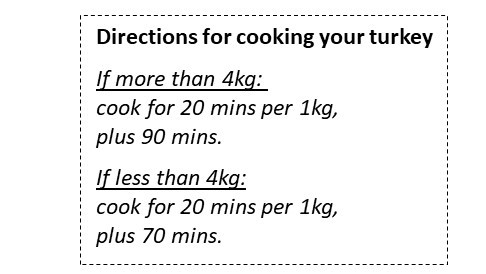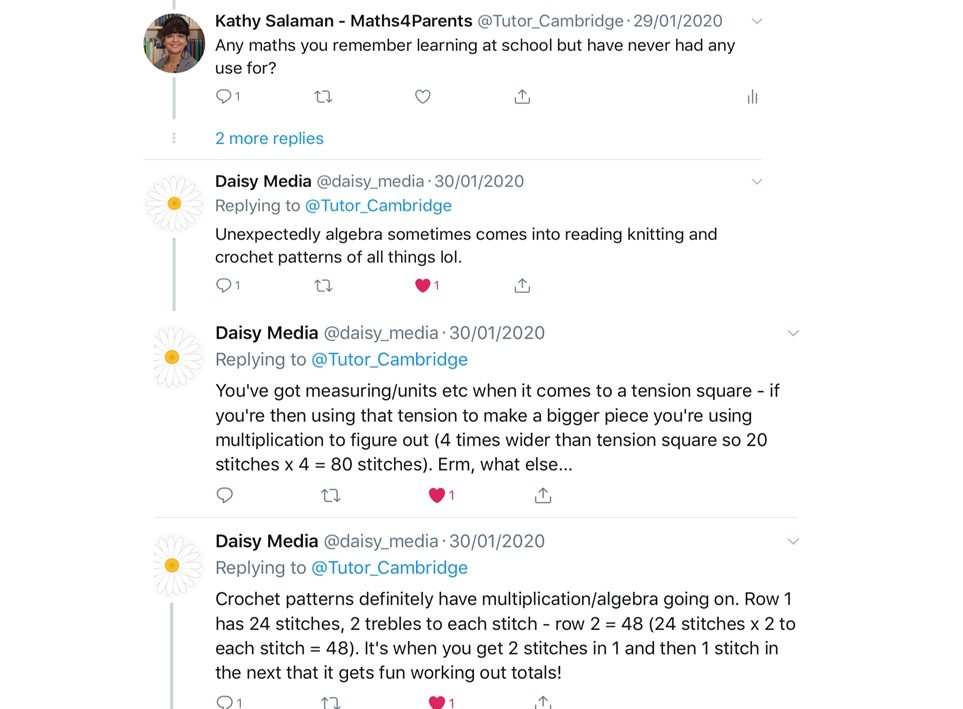
It might surprise you to know that we use algebra quite a lot in ‘real’ life.
Here’s just one example:

This requires knowledge of algebraic formulae. (Sounds brainy, doesn’t it?)
It simply means that, if your turkey is 5kg, you need to work out that the cooking time will be 20 minutes multiplied by 5, then add on another 90 minutes.
In algebra (where ‘c’ is the cooking time and ‘w’ is the weight of the turkey) this would be expressed as c = 20w + 90
Of course, we don’t actually say that when we’re working out how long we need to cook the turkey (well, most of us don’t) but we’re doing exactly the same thing.
And how about when you book a taxi, or pay an engineer to fix your boiler?
Most taxi firms will charge you a standard rate for a call out, plus so much per mile or kilometre.
Boiler engineers usually charge a call-out fee, then so much per hour of their labour, plus parts and VAT.
Recently, I asked my Twitter followers which aspects of the maths they learned at school do they use regularly in adult life (and which they don’t). I wasn’t surprised by the number of responses claiming never to have needed algebra, but I was pleasantly surprised to receive the following from Hannah at Daisy Media:

Not being a knitter myself (I tried it once but my attempt finished up hanging from a tree in my garden, where I’d thrown it) I wasn’t convinced, so had a look at some knitting patterns online. And Hannah’s right: knitting is one of the most mathematically challenging tasks you can try. Who’d have thought it?
Yes, mum – really: you are an algebra whizz!
There are so many more areas of adult life in which algebra is used – some related to certain occupations, some to hobbies, and others to domestic tasks.
Think about it: where in life do you use algebra?

